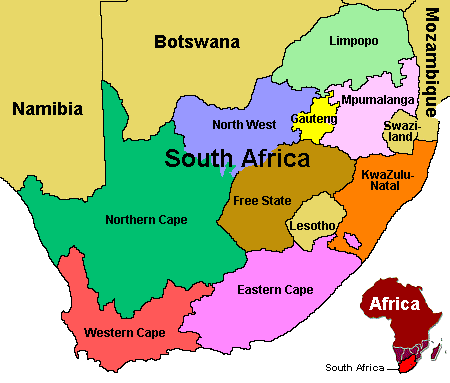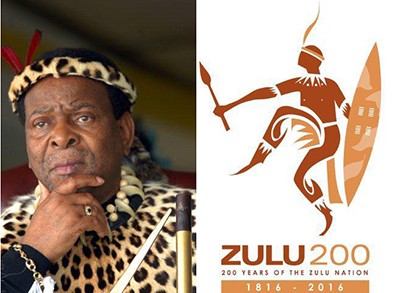You never mention Africa without mentioning South Africa. From the Vasco da Gama days to the Apartheid, and Nelson Mandela – Africa’s most honoured man; South Africa is a land with so much to offer. It boasts of the best economy in Africa and even though it’s the youngest democracy in the continent, the country has demonstrated maturity in her governance, with sound structures that have led to prosperity on social, economic, and political fronts.
The country was the first in Africa to host the FIFA World Cup and has hosted several Cricket and Rugby world cups. SA is ranked 1st in terms of flora and her fauna is equally diverse. Then you have historic features such as the Table Mountain and several other attention-grabbing stops on the land. Surely, there is just too much to say about South Africa. The purpose of this article is to highlight just 10 out of the many questions that people who are interested in South Africa would like to know and also to point out certain things that have made South Africa stand out as the best country in Africa.
10 Tourist Inclined Questions About South Africa
1. Where is South Africa?
South Africa, just as the name suggests, is found to the south of Africa. The country has a landmass of 1,233 404 kilometres. Three-quarter of its borders touch the shores of the Indian Ocean and the Atlantic Ocean. This leaves South Africa with nearly 3,000 kilometres of coastline. The country is bordered to the north by Botswana, Zimbabwe, and Namibia. South Africa also wraps itself around two independent states; Lesotho and Swaziland. Only 12% of South Africa’s land is arable. 10% of the arable land is irrigated.

2. How is South Africa administered?
South Africa attained independence in 1994 and has since enjoyed democratic government. Until 1994, the country was entangled in a fight between locals and Europeans, a war that is popularly known to as the Apartheid. It is divided into nine provinces. These are; Eastern Cape, Guateng, Kwazulu-Natal, Mpumulanga, Limpopo, Free State, North West, Western Cape, and Northern Cape. The country has 3 capitals; Pretoria (administrative), Cape Town (Legislative), and Bloemfontein (Judicial) and adopts a presidential system of government with the president as the head of government. Nelson Mandela was the first democratically elected President of South Africa. The second president was Thabo Mbeki and the third and current one is Jacob Zuma.
3. What is the economic situation of South Africa?
While the apartheid dragged the country on its heels for a considerable length of time, South Africa remains the continent’s best run economy. In fact, SA has had a stable economy since the 90s with her Gross Domestic Product (GDP) growing steadily for the past two decades. The country is regarded an emerging market (there are three categories of markets; developed, emerging, and third-world). This puts her in the category of Malaysia and other fast growing economies. This growth can be attributed to carefully thought out financial policies that focus on building solid economic structures.
4. Is South Africa still the biggest tourist destination in Africa?
South Africa remains traveller’s favourite destination in Africa. No other country comes close within the continent. In fact, destinations such as Kenya and Mauritius which are the country’s arch-rivals in terms of tourist attractions only manage between 10% and 20% of the total South African tourist population. Tourist attractions include sports, nature, and wildlife. South Africa is one of only a few countries where tourists go to dive with whales. The climate makes it a perfect destination for tourists especially around January and February when Europeans love to move to temperate regions to escape the freezing winter.
5. How diverse is the population?
South Africa had a total population of approximately 51,770,560 million according to the 2011 census. You would expect that number to have risen slightly by now. The population is very diverse in terms of cultures, languages, and religious beliefs. Africans form the majority of the population at 41,000,938. The coloured population makes about 8.9% of the population equating to just over 4.6 million people. Whites account for 9% of the population at approximately 4.9 million, while Indian/Asians make up 2.5% of the population, equivalent to approximately 1.3 million people. People classified as “others” make up about 0.5% of the population.
6. How many languages are spoken in South Africa?
The South African constitution recognizes 11 official languages. These are Afrikaans, English, isiNdebele, isiZulu, Sesotho sa Leboa, Sesotho, siSwati, isiXhosa, Tshivenda, and Xitsonga. Of the 11, isiZulu is the most common language with nearly one-quarter of the population speaking it. It is followed closely by isiXhosa and Afrikaans at 17.6% and 13.3% respectively. Besides these eleven, scores of other African, European, Asian, and other languages are spoken in the country.
7. How is the education system?
With 7% of annual GDP being directed towards education, SA remains one of the countries with the highest investment in education in Africa. Basic education begins at Grade O or Grade R (Reception Year) and continues for 13 years. The final year is known as Grade 12 or “Matric,” the year of Matriculation. Mandatory schooling starts at age seven (Grade 1) to age fifteen (Grade 9). Nearly 900,000 students proceed to public institutions of higher learning that include 11 Universities, 6 Technical universities, and 6 comprehensive institutions.
8. Two Nobel winners on the same street, is that true?
You rarely find two Nobel Award winners in the same country. Within Africa, you’d count the countries that have produced Nobel winners on one hand. However, South Africa is different. Nelson Mandela and Desmond Tutu, won the Nobel Award on different occasions but the two once lived on the same street of Vilakazi in Soweto.
9. Does the country produce fruits?
One thing South Africa is best known for is her fruits. Indeed, SA remains the second largest producer of fruits in the world. This is in part attributed to the optimal climatic conditions. The country produces a wide range and species of fruits that are sold both locally and in the east and western markets.
10. Does the Zulu Kingdom still exist?

Finally, nothing stands out in south part of Africa like the Zulu Kingdom. Generation after generation, while kingdoms have come and gone, the Zulu remains intact. The Zulu Kingdom is found in the KwaZulu-Natal province. Indeed, the kingdom is recognized and provided for in the constitution. The current king of the Zulu is Goodwill Zwelinith kaBhekuzulu. He has 6 wives and 27 children.
Summary
There are several interesting facts not mentioned here but which are equally as important and very exciting. As already mentioned, you can’t mention everything about this marvellous country. Even though it has not been independent in democracy as long as some other African countries, it is a place you can go to and forget all of your troubles.

